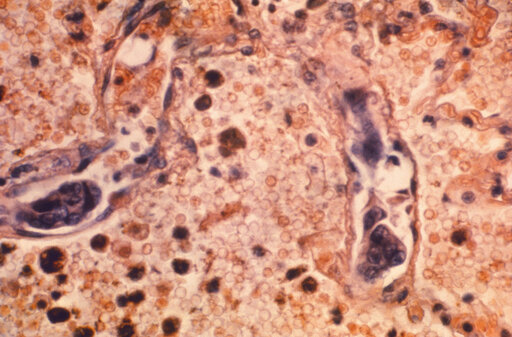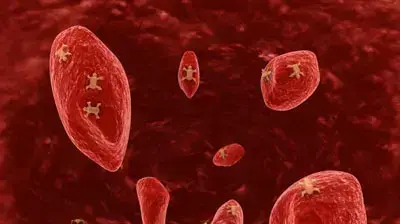Cancer mortality rates have steadily declined in recent decades, and have fallen by almost a third since the early 1990s, according to a report published Wednesday by the American Cancer Society.
Between 1991 and 2017, deaths from this disease generally fell by 29%, which is estimated to represent almost three million deaths avoided.
It was largely due to the decrease in mortality from breast, colon, lung and prostate cancer, and the higher survival rate in lung cancer, according to the annual analysis published in CA: A Cancer Journal for Clinicians.
In the latter case, mortality fell 51% among men since the early 1990s and 26% among women since the early 2000s.
Between 2016 and 2017 there was also the biggest historical drop of 2.2%.
Doctors attribute it in part to low smoking rates, and also to significant advances in treatment.
The main advances
"The years we have been investing in basic science of cancer therapeutics [now] are beginning to bear fruit," said Patrick Hwu, division chief at the Anderson Cancer Center in Houston (Texas).
Hwu, who was not involved in the new report, said the breakthrough is also due to targeted therapies, with medications that work to eliminate the circuits that activate cancer cells.
Another of the greatest advances has been the development of therapies such as Keytruda , also known as pembrolizumab, which uses the immune system to fight lung tumors and melanomas.
Regarding this skin cancer, there has also been a marked fall, of 7% between 2013 and 2017, according to the aforementioned report, which attributes it to new treatments (among them, ipilimumab and vemurafenib).
"We are seeing the effect of those medications," said Rebecca Siegel, scientific director of the American Cancer Society and author of the report, "is really exciting."
"In the last decade, the way we treat invasive melanoma has evolved so incredibly fast that, for some, it is becoming a more chronic disease than a death sentence," said Adam Friedman, professor of dermatology at George School Washington of Medicine and Health Sciences.
More work ahead
Not all cancers had better survival rates. Thus, no significant improvement in cervical cancer deaths has been recorded in the report. It is a disease that can be prevented with a vaccine and is identified through early detection, but, even so, in 2017, 10 women aged 20 to 30 died each week in the United States.
Other findings of the report are:
- A 40% decrease in the breast cancer mortality rate between 1989 and 2017.
- A 52% drop in prostate cancer between 1993 and 2017.
- A 53% decrease in colorectal cancer since 1980 among men and 57% since 1969 among women.
Nevertheless, lung cancer remains the leading cause of cancer death, killing more people than combined breast, colorectal and prostate cancers.
The American Cancer Society projects that 606,520 people will die of cancer in the United States in 2020, and that more than 1.8 million new cases of cancer will be diagnosed.








